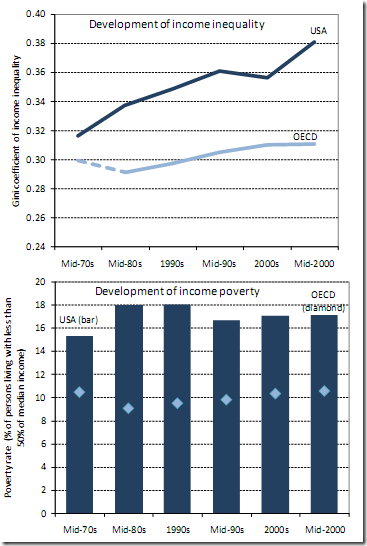 I’ve had some deep discussions today about the Boston Marathon bombings with friends. Here’s something I shared with a friend who lives in the Boston area in Massachusetts. His predominant feeling right now is disillusionment. If you’re in the same boat, I hope you find it helpful in some way. Thanks for any feedback.
I’ve had some deep discussions today about the Boston Marathon bombings with friends. Here’s something I shared with a friend who lives in the Boston area in Massachusetts. His predominant feeling right now is disillusionment. If you’re in the same boat, I hope you find it helpful in some way. Thanks for any feedback.
Friend, I hope this event won’t shake your faith in humanity or in the continued acceleration of global progress, or in our ability to better understand what progress is, and for reasons yet to be discovered, why accelerating progress seems only partly under our control, and partly driven by the amazingly intelligent and self-correcting environment into which we were born.
 There are always half of one percent of us who are seriously broken in some way. It is surprising, when you stop to think about it, that majority of us are so strongly against doing such cowardly and terrible things. Almost all violence is rapidly self-limiting. It can be a calculation of fairness, a seeking of justice in the wild. Or a case of beliefs being seriously out of step with reality, or emotions not being sufficiently regulated. Fortunately, for the vast majority of us, our moral sentiments and desire to cooperate are incredibly deep, selected and self-organized over countless previous life cycles. At the same time, our tools and policies for protecting the world system get only better and smarter. We must understand these processes better, and aggressively work to improve them in society and the individual.
There are always half of one percent of us who are seriously broken in some way. It is surprising, when you stop to think about it, that majority of us are so strongly against doing such cowardly and terrible things. Almost all violence is rapidly self-limiting. It can be a calculation of fairness, a seeking of justice in the wild. Or a case of beliefs being seriously out of step with reality, or emotions not being sufficiently regulated. Fortunately, for the vast majority of us, our moral sentiments and desire to cooperate are incredibly deep, selected and self-organized over countless previous life cycles. At the same time, our tools and policies for protecting the world system get only better and smarter. We must understand these processes better, and aggressively work to improve them in society and the individual.
 The mentally ill, extremists and oligarchs throughout history are a persistently tiny fraction of society. The main effect of mental illness events like this (these particular bombings, irrational as they are, are even more a mental and psychological illness than an extremist/terrorist event, as I see it), aside from their tragic short-term cost, is to grow our global immunity to them in future years. If we learn from them (a critical “if”), they accelerate the emergence of the transparency tools and social development programs that we know is our future, and as long as it is increasingly a bottom-up, citizen-driven transparency and social development process, we gain greater control over both the extremists and the autocrats, our democracy strengthens, and the world gets collectively more intelligent. Imagine, as social and media futurist Alvis Brigis says, if it was ten years in the future and one out of twenty people in that Boston crowd had been wearing Google Glass or an equivalent? (I’m a Glass Explorer, so I’m looking forward to getting an early adopter version of this fantastic new wearable computer and lifelogging tech). They’d all be able to share their recent archives and feeds and it wouldn’t be long before we’d have the perpetrators identities and last public locations.
The mentally ill, extremists and oligarchs throughout history are a persistently tiny fraction of society. The main effect of mental illness events like this (these particular bombings, irrational as they are, are even more a mental and psychological illness than an extremist/terrorist event, as I see it), aside from their tragic short-term cost, is to grow our global immunity to them in future years. If we learn from them (a critical “if”), they accelerate the emergence of the transparency tools and social development programs that we know is our future, and as long as it is increasingly a bottom-up, citizen-driven transparency and social development process, we gain greater control over both the extremists and the autocrats, our democracy strengthens, and the world gets collectively more intelligent. Imagine, as social and media futurist Alvis Brigis says, if it was ten years in the future and one out of twenty people in that Boston crowd had been wearing Google Glass or an equivalent? (I’m a Glass Explorer, so I’m looking forward to getting an early adopter version of this fantastic new wearable computer and lifelogging tech). They’d all be able to share their recent archives and feeds and it wouldn’t be long before we’d have the perpetrators identities and last public locations.
Mental illness is one issue, but what about oligarchy (government by elites, without representation) and plutocracy (government by the wealthy), and the way such governments breed extremism in the developing world by replacing culture with commercialism, removing self-determination and representation, and inducing cornered cultures to react with Fundamentalism? If increasing political, economic, and social fairness is a clear vector of social progress, how do we keep building it in all our societies in the years ahead?
With regard to the plutocrats, there is good news: our global rich poor divide has never been smaller. It was highest in the 13th century under Feudalism by several measures, and has slowly decreased ever since. But the problem we face is that in the world’s leading and fastest developing countries inequality seesaws, at first going up as the wealth of new technology revolutions is initially captured by the well-capitalized few, and then later down again as the revolution works its way out to the many, where the maturing and cheapening tech allows disruptive new entrepreneurship on top of the platform, and as new rights and entitlements eventually emerge.

The Finland Phenomenon, a great film on the education reform the US needs to make more self-reliant, innovative, and less fearful citizens.
As Joseph Stiglitz discusses in The Price of Inequality, 2013, we need a certain amount of income inequality to spur innovation, but if we let it get too big, the wealthy and the corporations capture our political machinery, only their interests are represented, and democracy, political reform, and political compromise and moderation die. Due to tech globalization’s great wealth creation, income inequality has grown rapidly in the last 60 years in a handful of nations, in the 1970’s-80’s in the US, UK, and Israel, and in the 1990’s and 2000’s also in rapidly developing countries like China and Brazil (and to a much lower degree, in a few low-inequality countries like Germany and Sweden). In the U.S., asset inequality is now so extreme that just 1% of us own 40% of the nation’s wealth. When our lower and middle classes can no longer find meaningful jobs under constant technological change, while we see other developed nations doing far better with education and job creation, we should not be surprised. We let this happen, by letting our MNCs get larger than governments (instead of splitting them up, as we used to), and by dismantling progressive income and inheritance tax for the wealthy (which last existed seriously in the US in the 1950’s).
To bring this back to the theme of this post, another big price of plutocracy is that our citizens lose the ability to engage with the developing world an empathic and positive-sum way, and our fear grows. We fear technological progress, as the job disruption dumps us into a degraded society that doesn’t keep job creation and retraining as the top priority. We fear the further loss of jobs via outsourcing. We fear immigration, and forget that merit-based immigration is one of the fastest creators of new jobs, science, and industries. We fear other belief systems, and we demonize the other, rather than finding common cause with the moderates in every religion and group. As our political system gets captured by unresponsive and polarized elites (they are wealth driven and fight hard to divide the spoils among themselves), tough social problems like educational reform don’t get done. See The Finland Phenomenon for an excellent example of what we can will one day do to fix our broken educational system, when we finally get the political will. In the meantime, our citizens grow increasingly globally ignorant, inward-focused, and politically apathetic, or polarized and uncompromising like their wealthy masters.
But, thank the Universe, America is an outlier, with our elites capturing such an outsized portion of the new technological wealth in the last six decades that we are going temporarily against the global trend. We will eventually reverse this and be forced, by accelerating technoeconomic integration, to get back to the global trend. The developed OCED countries as a whole aren’t following our sad course of sixty years of rapidly increasing income inequality and 60% higher levels of income poverty, as the 2008 OECD graphic at right shows. Remember that for the global economy, the absolute size of the inequity gap is still closing since Feudalism. As visionary books like Abundance, 2012, make clear, we can see how extreme global economic and educational poverty will disappear just a few decades hence. Many of the emerging nations are now in the process of growing their GDP two or three times faster than us. Check out Gapminder.org for some beautiful graphs telling that story. If we’re thinking at all about accelerating tech, we can see a new world of the conversational interface and of teacherless education (to use futurist Thomas Frey’s great phrase) less than ten years hence, where every literate and illiterate child has a wearable waterproof smartphone on their wrist, listening in to what they are learning and teaching them who knows what.
Accelerating technology always causes evolutionary disruption in the first phase. More money goes to the rich and the leading corporations, at first, rather than the rest of society from any new technological and trade revolution, be it industrial, transportation, mass consumption, communications, personal computing, internet, web services, or any other revolution affecting the global marketplace. In the U.S. and a few other countries, these and other revolutions have been the dominant story of the latest 60 years of globalization. In turn, the vast new wealth increase of the MNCs, many of whom now have revenues larger than those of the leading countries, and their unrestrained effects on the developing world, has been a great driver of the clash of cultures and the extremist events we see today. We are pushing citizens in many of these cultures to change at a rate far faster than their reformists are comfortable with, and successive waves of technology innovation are driving them (and us, but always to a far lesser degree) continually out of their livelihoods into a globally wealthier but, in the absence of good retraining and social safety nets, a much more socially uncertain future.

 Eventually the global system, being not only evolutionary but also developmental, always gains irreversible new levels of total positive-sum integration, and immunity. For the system as a whole, virtuous cycles are always underway and antifragility will increasingly dominate, if global development is like living systems development, as I believe it is. I hope you can find a way to see and guide the positive changes that will come from this tragic event, as they surely must.
Eventually the global system, being not only evolutionary but also developmental, always gains irreversible new levels of total positive-sum integration, and immunity. For the system as a whole, virtuous cycles are always underway and antifragility will increasingly dominate, if global development is like living systems development, as I believe it is. I hope you can find a way to see and guide the positive changes that will come from this tragic event, as they surely must.
So regarding our emotions and actions around this bombing, with a potential to cause disproportionate fear and immune response, as occurred after 9/11, I think Bruce Schneier’s brief piece in The Atlantic says it best: “Keep Calm and Carry On.” Let’s not overreact, overspend, overregulate. Let’s not fixate on or overgeneralize this rare event itself, or get scared. Let’s continue to work calmly on the social development processes (income equity, representation, education, psych services, job creation, civics, religious tolerance and reform) that will reduce the probability of this happening again, and the transparency processes (primarily bottom up, and secondarily top down cameras, sensors, networks, databases, pattern recognizers, human intelligence) that will increase our ability to find, isolate, and help (or at least, prevent from further harm) the broken folks or individual who did this.
Let’s implement our actions carefully and incrementally, while always insuring their social benefits exceed their costs. Let’s keep calm and carry on.




Nice piece as usual John. I agree with you, we have an amazingly intelligent environment (both humans and everything in it), but I’ve been wondering about the self-correcting aspect of it. But like you said, we don’t need to overreact, lets just keep calm, and carry on. Great analysis
Hi John, thank you for this brilliant essay. It shows what a visionary you are. You hit all of the correct reasons and cures for the underlying processes leading to such events. Yes, they are the tip of the iceberg, buried deep in society. I agree totally with them, but I do not see many other people seriously implementing fixes. And until that happens, they will remain our goal. I do not see action on improving education, making health care more efficient, improving living conditions so there are no desperate people, and even on changing attitudes toward guns in the wake of such horror. If anything, some of the counterproductive positions are hardening. The old, caste-based society in India forbade people from reading so they were kept in submission. Their ruling elite did not altruistically improve their living conditions. I agree that we are against a trend and that eventually we will get back to it, as India was, and I hope that it is sooner than later. But let’s remember that the Mayan society did not evolve out of war, did not develop immunity by evolutionary and developmental process, did not return to the progressive trend and eventually totally self-destroyed. I sincerely hope that this will never happen to us and that we will be the ones to enrich the Cosmos with higher levels of consciousness, but it is not written in the stars that it will happen. The only thing we are left with is to work hard to bring it to fruition and keep the important ideas that you mentioned in mind, but also not to be complacent that everything will just work out. We have to draw our lessons from history and be aware of alternative possibilities that we do not want to happen, that are too real, and that we need to work every second to fix. Otherwise anything is possible. I am an optimist, but I cannot ignore alternative scenarios.
Georgi Georgiev
Hi Georgi, so very well spoken. I agree there is good cause for some disillusionment and pessimism around America’s short-term prospects, for the reasons you mention. However, there are accelerating sci-tech and social developments presently under way that are permanently changing our environment, and will continue to do so, and so I don’t see this kind of pessimism justified for the world as a whole. Many of the world’s leading countries are doing much better with critical quality of life issues like education, health care, and employment, as they accelerate scientific and technical change (though perhaps slower than some of us would like, but still, accelerating). How much and how fast the U.S. will learn from these cultures is an open question, but if we don’t, the Chinese or European researcher who makes the next medical or AI breakthrough is still humanity’s “best friend.”
Historically, I’ve always been impressed with the rate of learning and improvement of the majority of us as a species are doing, even if the leading culture often gets into trouble. Most leading cultures fight far too much with their neighbors and are far too exploitative of their local resources (forests, megafauna) and farm their fields to barrenness and so the leading civilization has “burned” across the planet, moving to a new location and culture every few hundred years in recent millennia. But perhaps the leading edge culture must always be so dissipative. At least for the world as a whole, this exploitation has become increasingly restrained and transparent as history has proceeded. Like the Greeks, Romans, and so many others before them, the Mayan’s reach exceeded their grasp. But it seems Mayan society was particularly rigid, heirarchical, and authoritarian (fragile, in Taleb’s language), greatly discouraging unplanned activity of any kind, so like the Soviets and other central planning disasters they were particularly vulnerable to catastrophe, I’ve heard.
Your points about eternal vigilance and the steep price of complacency are excellent and I agree entirely with them. But beyond vigilance, I think as history and science progress we will continue to learn that there are also real vectors of technical and social progress that we are following, and most surprisingly, these developmental and immunity processes seem to be built in to the nature of life and the special universal environment in which we live. We can continue to think that “we” control everything, that we alone decide our fate, but the more we look, the more I believe we will see the universe is guiding us in an accelerating direction. We decide our fate within a framework provided by system, and that framework is pushing us in a particular direction. So I think we can improve our fate a lot by finding out exactly what processes are pushing the acceleration, and the growth of resilience and immunity that happens in the system over time, and prioritize the management of those, and also by recognizing that our neighbors (other cultures, evolutionary experiments) have much to teach us as well. Thanks for the feedback. Great discussion.
Very well said John,
I think that we should consider the predictability of the exponential trends, which you so eloquently describe, on large scale – entire system or system of systems, but unpredictability on small scale – individual, community, city or even a country. We can predict the computer power and price 20yrs from now. We have done so, very successfully for the last 40 years. Similar for the genome sequencing, photovoltaics, all examples of performance curves, but we cannot predict where will an accident happen in the next minute. This unpredictability reminds me a lot of the unpredictability on small scale represented by quantum mechanics. There all can be described only by probabilities. On large scale, all those unpredictabilities average out and the system is deterministic and stable. This also reminds about the difference about weather and climate, the first unpredictable at a point location, but the second largely predictable. This seems to be a fundamental property of systems of all types, on large scale the uncertainties and variability average into a very deterministic system. One more example: it is impossible to keep track of the speed and direction of each molecule in a room, but a thermometer tells us about their average speed with one number. Those are emergent predictability properties available only at large scales. They allow us to predict the future of trends, but not the details.
This, my friend, feels like an important paper waiting to be written. Perhaps we can dedicate a day later this year to looking around on Web of Science to find out who else has written things that echo this evo devo perspective, folks not presently in our community. It feels to me that good scientists, policymakers, businesspeople, and citizens need to be able to simultaneously hold each of these two reference frames in their minds, the deterministic and the undetermined, and better understand each to greatly improve their effectiveness in the world. A good review paper on this, summarizing what has been said so far on evo vs. devo in living and social processes at planetary scale could be a very helpful addition to the literature. Anyone with a scholarly interest in this is encouraged to join our research community, http://www.evodevouniverse.com.